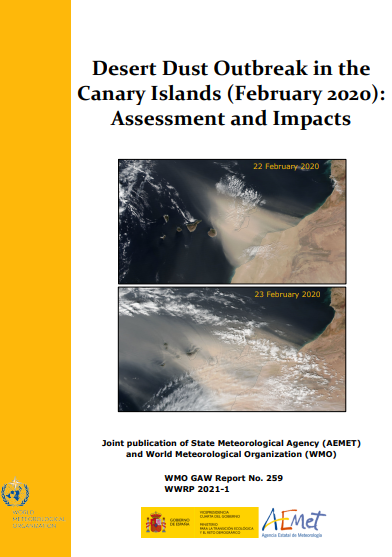Agencia Estatal de Meteorología (AEMET), Barcelona Supercomputing Center (BSC), World Meteorological Organization (WMO), 2020

The Izaña Observatory is world-renowned as a pioneer in the studies of mineral dust and its impact on the environment. It is ideally located to serve as a Centre of excellence in future aerosol research and continue to lead research on mineral dust and its role in climate change. Due to the extensive experience available in the Canary Islands and specifically in the Izaña Observatory, in undertaking studies on Sahara mineral dust, it was considered appropriate to carry out a comprehensive multidisciplinary study of the 22-24 February 2020 dust outbreak that severely affected the archipelago. The 22-24 February 2020 dust outbreak, the most intense since there are records in the Canary Islands, is the ideal candidate for this type of study. The increase in the frequency and intensity of adverse meteorological phenomena as a consequence of climate change and global warming requires atmospheric researchers to work together with specialists from other disciplines to be able to assess the impact that adverse meteorological events, such as dust outbreaks, can have on numerous socio-economic activities, and to estimate if possible, their economic cost.



